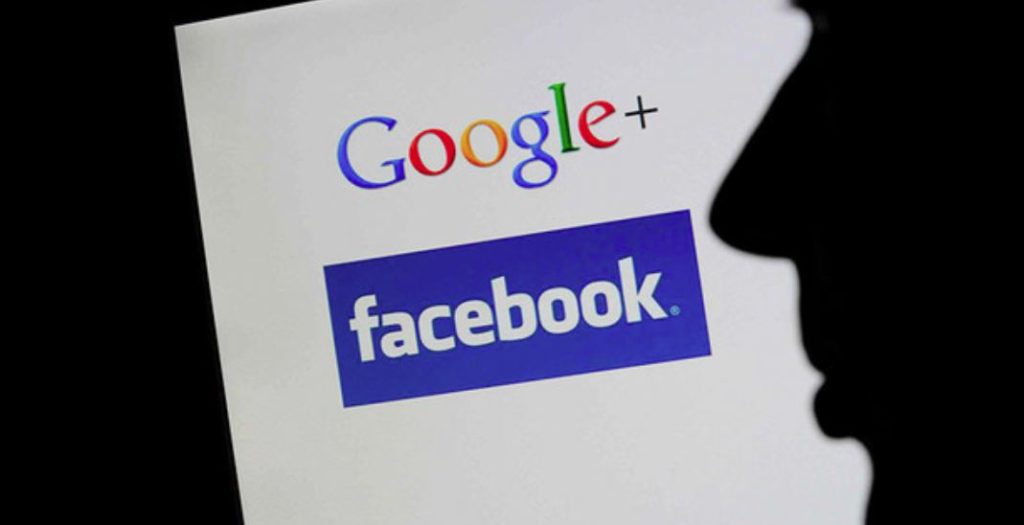how to get social networks to moderate content

In the past few decades, the Internet has not only become a virtual supplement to reality but has also become a fully functional world between states-multinational Internet sites live according to their own rules. Authorities around the world no longer intend to endure this situation-because IT company themselves cannot cope with self-regulation, which means they need to develop certain rules to help them fulfill their obligations to review content.
Global war
US President Donald Trump signed an executive order on the supervision of the country’s social networks on Thursday, May 28. According to the head of state, the demand for the document is increasing because before signing the document, the social network “can do whatever they want”. The Federal Trade Commission should ensure that Internet sites comply with the “any misleading or harmful trade activities” participation ban.
“I signed an executive order to protect freedom of speech and the rights of American citizens. Social networks like Twitter, based on the theory that they are neutral platforms, have unprecedented liability protection. But this is not the case. The executive order is designed to be based on Article 230 [Establishment] of new regulation in the “Communications Act on Ethics”. US leaders say that social networks participating in censorship or political action will no longer have responsibility for protection, which is a major decision.
In recent years, the government’s attempts to establish rules to self-regulate platforms operating on the Internet have become a global trend. It is enough to recall that France passed a law in mid-May to stop the spread of fakes. According to the new regulations, online platforms must delete or make inappropriate content illegal within 24 hours of receiving relevant information. For terrorist content and child pornography, the response time is reduced to 1 hour. The fine for non-compliance with these requirements has tripled: from 37,500 euros to 112,500 euros.
“Almost all countries today are concerned about the regulation of platforms hosting user content. Alexander Zhuravlev, Chairman of the Digital Economy Legal Support Committee of the Moscow Region Lawyers Association (AJR) of the Russian Federation, said that this was the latest in France. The reform and other EU legislative bills passed in 2017 have been proven.
Ekaterina Mizulina, the head of the Secure Internet Alliance, also pointed out the global trend of trying to simplify the self-regulation of the network. According to her, the states did not start thinking yesterday about what Internet sites are and what opportunities they have.
“In fact, Internet giants, multinational companies are becoming a state between states. The head of LBI emphasized that the opportunities, capabilities, and resources they have to enable them to determine their own conditions and game rules, and absolutely not Will respond to requests from various authorities.
Mizulina said the first precedent of a broad nature is China-as early as 2009, Chinese authorities accused Google of provoking a political nature and spreading false information. The company’s resources, including YouTube, have been blocked in China, and Beijing has been subjected to massive attacks by the United States and several other countries, accusing him of implementing a censorship system. “Now we see that the United States itself is in a similar situation as far as the US president is concerned. Experts say that we will carefully monitor how they get out of trouble.
Allowed border
Authorities in states around the world have concluded that it is impossible to rely solely on the prudence and pure intentions of social network management agencies. The boundaries that both Internet sites and users will obey must be determined. Only then can it be possible to maintain some order in the natural chaos of the World Wide Web.
\
“The task is to write uniform rules that allow users to interact with the platform without infringing on the rights of anyone. In addition, these rules should also provide barriers to the dissemination of false news, deep false, and other obvious false information and information. In the unified Relevant rules, the website will have to use a more accurate algorithm to prevent Facebook from appearing in the story of the victory banner. Alexander Zhuravlev said that users will follow the clear rules of the game.
Similarly, if one of the parties believes that its rights have been violated, for example, if the user believes that the site is abusing its rights and does not comply with the relevant standards, it will always have the right to apply to the supervisory authority (Roskomnadzor) or the court with protection requirements.
Zhuravlev explained that until that moment, almost all lawsuits initiated by users related to account blocking or unreasonable blocking of content were mainly resolved through social networks because social networks have rules. If we talk about legal mechanisms, then when you agree to become a user of the site, you are accepting its rules (offer). Then, you must follow the rules set by the site.
here is another side to the issue – for example, related to not always reliable reviews of goods, services or work posted on their online sites. If a consumer bought a product, focusing on a review of its characteristics, and they turned out to be fake, then the consumer was misled. “If we talk about the judicial protection of such users, then it is significantly complicated because the sites largely write the rules that are convenient for them. Plus sites, as a rule, do not disclose information about other users, so that you can reliably verify their reality. With unified rules, consumer protection would be easier, ”explains Alexander Zhuravlev.
According to the expert, it is necessary to reform the legislation regarding the adoption of a self-regulatory model. The principle of the model is simple and clear – the state, in consultation with the industry, publishes a certain set of general rules that all sites and users must adhere to. After that, the relevant legislation is adopted, users and sites get acquainted with it, and work already under the new rules.
“If suddenly the user or the site violates these rules, then in the first stage they will independently resolve issues related to content among themselves, and in the second stage, if one of the parties is not satisfied, this side can go to court or go to the regulator for protecting their rights. If the regulator or the court establishes a violation of these rules, then in this case the user or the platform may be held administratively liable. But, again, in the first offense, we recommended limiting ourselves to the warning. Here, of course, everything will depend on the circumstances in which the illegal content was distributed, as well as its consequences, ”said Zhuravlev.
Error handling
The director of the Safe Internet League, Ekaterina Mizulina, believes that before the government intervenes in the development of fact-checking standards on Internet sites, they need to be forced to respond to incoming complaints.
“The fact is that, unfortunately, even this is not happening now – they react very selectively. This makes us think about the existence of some kind of double standards on the part of the sites, because they block some objectionable information very easily: for example, Facebook forbids the dissemination of the words “dill” or “bicycle”. But at the same time, they themselves do not want to block destructive information, for example, about the sale of drugs and drug use. There are a lot of such communities and in the Russian segment of social networks they have been actively growing recently, ”she complains.
According to her, in Russia, large social networks, if desired, respond to requests from law enforcement and executive authorities, as well as to user complaints, but when this is not there, they pretend that there are simply no requests and complaints. “It turns out a strange situation in which these companies operate in Russia, they receive quite a lot of money selling advertising and other services, while they are not tax residents in the Russian Federation, they do not have legal entities here, they do not respond to complaints and appeals, while and block the same users, ”the director of the LBI explains his position.
The Safe Internet League believes that it is necessary by law to introduce additional obligations for social networks and instant messengers to stop the dissemination of false and destructive information. They must independently identify such information or promptly respond to incoming complaints and block such content. “Nobody knows their resources better than them at the moment, nobody knows who this information is mostly consolidated. If they don’t do this, Internet sites will be held administratively liable and will receive large fines, ”says Ekaterina Mizulina.
The LBI began to promote this initiative in 2018, and currently, it is in the Federation Council under consideration by a working group led by Lilia Gumerova. The model we offer is mostly based on German experience – now France has introduced a similar system. In Germany, there is a strict system for monitoring the database of operators, the resources themselves control and themselves give out the violators, there are sufficiently short periods for blocking and deleting information, and if such self-censorship is not carried out, they receive fairly large fines – up to 50 million euros.
“We believe that it is not necessary to shift all responsibility to the user because nevertheless, he comes to this site for a reason: he understands that this is a popular resource, and the publication will get some kind of coverage. If this happens, then who is to blame: the user himself, or should social networks be responsible along with him? And if this publication caused damage to the health of citizens? Indeed, often a person is not to blame for the fact that the content scored such a number of views, ”the expert notes.
From the side of users, the LBI, on the contrary, sees a positive trend – self-control has significantly increased, people no longer want to send fakes and try to check the information. “That is, a conscious, good process has already begun here, and this is precisely the result of the action of the law, which was adopted and entered into force from the beginning of April. Social networks and instant messengers, on the contrary, react rather passively – from all the fakes that we identified, they removed about 12%, and YouTube practically does not respond to our complaints, although we file hundreds of complaints about each publication every day, ”summarizes Yekaterina Mizulina.
Also Read:
Reduces risks: scientists are encouraged to wear masks at home
Games compatibility for PS4 with the PlayStation 5 console
OnePlus 8 Pro turned off the X-ray mode






